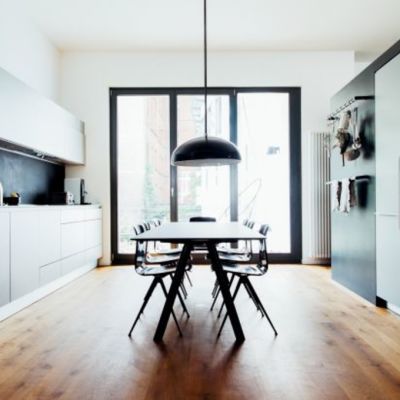Home shame: When people are too embarrassed to invite anyone in

- Is your home making you fat?
- What happens when friends buy houses
- Why do people lie about their suburb?
Ever wondered about that friend who never invites you around? International research suggests “home shame” could be responsible. This rarely remarked upon social phenomena may be more prevalent and pervasive than many of us realise.
Research commissioned by glue manufacturer Sugru, discovered 57 per cent of Britons surveyed were embarrassed about the state of their home. More surprisingly, shame about the state of their abode led 33 per cent to avoid letting anyone in.
The 2015 survey of 2000 Britons, also found 17 per cent had asked people to pick them up or drop them off at another address to avoid others seeing their home.
Worst of all, 62 per cent feel they’ll never get their home to a point they’re proud of. General mess and untidiness were named the most cringeworthy feature, followed by unfinished DIY jobs, dated kitchen units, cracked walls and ceilings and dated carpets.
While similar studies are yet to be conducted in Australia, the problem is likely to be common here.
Victorian resident Lisa Roberts says she is so embarrassed by her tiny, three-bedroom Bendigo home she rarely has anyone over. “It’s an older ex-commission house. It has awful green carpet in the living room and worn out beige in the hall and bedrooms. The kitchen, entrance, laundry and bathroom are white tiles, but some are broken and discoloured. The whole house just looks worn out. And cluttered.”
Roberts, whose partner died five years ago, juggles work as an early childhood educator while parenting four children. Time is the biggest obstacle in getting her home into shape. “I get a day here, a day there, and mostly that’s me keeping up with the dishes and the laundry.”
Home shame has adversely affected Roberts’ social and love life. “I started seeing a guy 11 months ago. He hasn’t been here. I’m too embarrassed.”
Conquer the temptation to compare
Social worker and relationship expert Debbi Carberry believes the internet and social media tempt us to make unrealistic comparisons with people who have a lot more than us.
“If I’m on Instagram or Facebook, I’m seeing what everyone has got,” Carberry says. “We don’t show our homes in disarray online. We make a story up in our minds: everybody else has it together but we don’t. Of course that brings a sense of shame. But, it’s a falsehood. If we peeped in the window of the other people we would see a different story. We are presenting things in a very false way. It’s the culture now. It’s a socially mediated space that is not even real.”

The internet and social media tempt us to make unrealistic comparisons. Photo: Alex Potemkin
It’s vital we don’t let home shame prevent us connecting with others, Carberry says, warning: “The data shows we are now connected closely to probably two people on a daily basis.”
Acceptance and gratitude can change our mindset. “We forget the basic stuff. That we have a home; we live in a safe country; and we could be more connected if we wanted to be.”
“I want you to come to my home because I’m in my home. My bricks and mortar are where I dwell. But they’re not me.”
Quick tips from the experts
Clare Dixon, spokesperson for Sugru, says home improvement doesn’t have to be about spending loads of money and week-long projects. “Sometimes, all it can take is a few minor changes here and there to at least improve your home to get it to a state where you are no longer embarrassed by it.”
Robyn Amott, a professional organiser and founder of Bless This Mess, suggests sprucing up your home with tile paint, inexpensive rugs or carpet offcuts – available from carpet shops.

A few minor changes here and there can get your home to a state where you are no longer embarrassed by it. Photo: Joern Rynio
Light colour schemes can add cheer, she says. Fresher, brighter furnishings can be obtained free or cheaply through secondhand online sites.
Recruiting help from the local community or paid professionals could get things moving, she adds, while putting aside 20 minutes a week to perform one task can make a difference.
Establishing new systems and routines and keeping possessions relative to the present, avoids recreating the problem of clutter. Amott recommends giving every space in the home a purpose and confining each category of item (such as magazines) to a place with a limit.
We recommend
We thought you might like
States
Capital Cities
Capital Cities - Rentals
Popular Areas
Allhomes
More










